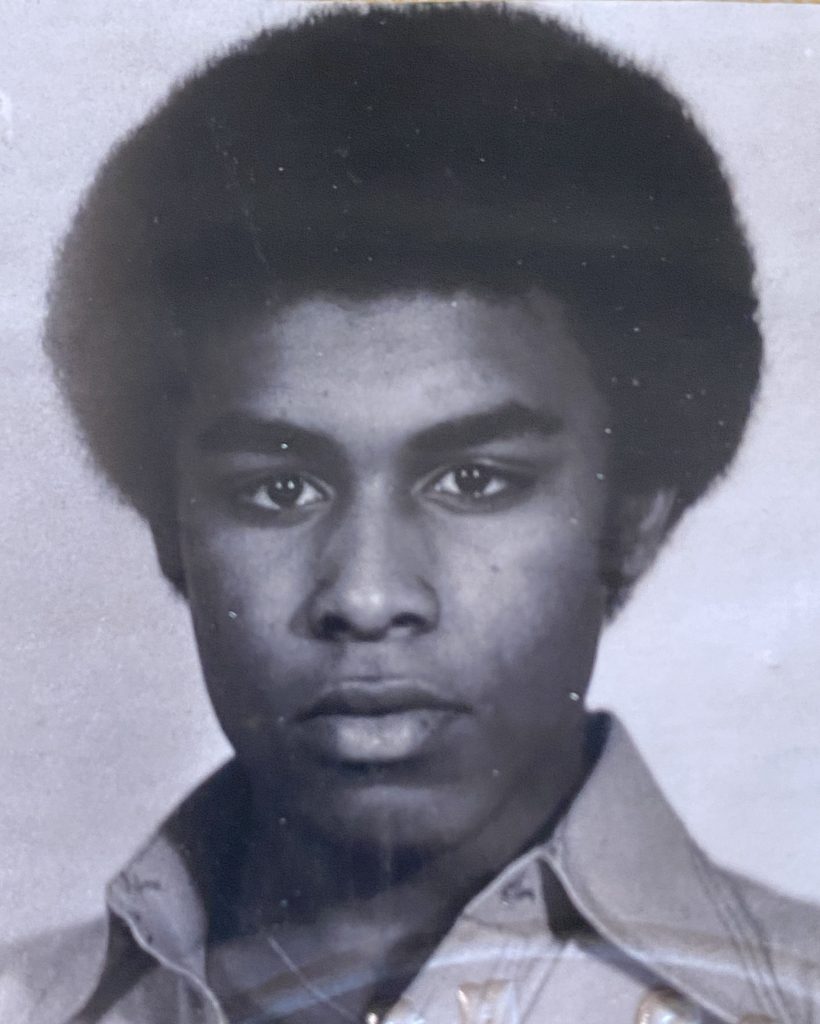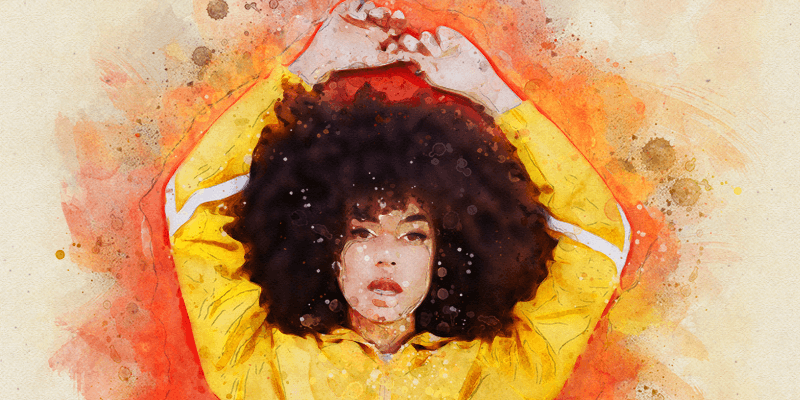World Afro Day serves as a momentous occasion to recognise, celebrate, and reflect on the significance of afro-textured hair. Yet, for many people of colour, the afro is not just a style but a symbol of cultural heritage, identity, and resistance against social norms that discriminate against natural hair. This blog post aims to delve into the history of the afro and its journey from stigmatisation to celebration. Most importantly, it aims to shed light on the importance of ending discrimination based on hairstyles.
The Roots of the Afro: A Brief History

Originating from the African continent, the afro hairstyle has been a part of black culture for centuries. However, it gained massive popularity during the Civil Rights Movement in the 1950s and 1960s. Prominent figures like Angela Davis and Jimi Hendrix donned the afro as a symbol of pride, rebellion, and resistance against systemic racism.
Elated to share a photo of myself back in the day proudly rocking my afro—an unapologetic nod to my heritage, roots, and culture. This isn’t just a hairstyle; it’s a statement of who I am and where I come from. My afro connects me to a rich lineage of resilience, creativity, and unyielding spirit that has been passed down through generations. It’s a symbol of my pride in my African ancestry and a celebration of the diversity that makes us all uniquely beautiful. As I join others in commemorating World Afro Day, I hope my photo serves as a testament to the beauty and power of embracing one’s natural self.
African Roots
The afro is deeply rooted in African culture, where it was more than just a hairstyle. It was a status symbol, indicative of a person’s family background, tribe, and social standing. Intricate hairstyles were crafted for various occasions, from birth ceremonies to weddings, making hair an essential part of African tradition.
American Soil
On American soil, the afro became a visual shorthand for the Black Power Movement. It served as a rejection of Eurocentric beauty standards that deemed straight hair as desirable and afro-textured hair as ‘unmanageable’ or ‘unprofessional.’
Cultural Relevance and Self-Acceptance
The afro today serves as a symbol of natural beauty and self-acceptance. Many people of colour now embrace their natural hair texture as an expression of their heritage and individuality. The ‘Natural Hair Movement’ has led to a surge in the availability and use of hair products tailored for afro-textured hair, making it easier for individuals to maintain their afros healthily.
Discrimination: The Ongoing Battle
Despite the strides made, discrimination based on natural hairstyles still exists. People with afros continue to face bias in professional settings, schools, and society at large. Such prejudices contribute to the ‘othering’ of people of colour and perpetuate racial inequality.
Legal Efforts
Efforts like the CROWN Act (Creating a Respectful and Open World for Natural Hair) in the United States aim to prohibit discrimination based on hair texture and protective hairstyles. However, much more work remains to be done globally to ensure that everyone can freely express their identity without facing discrimination.
Why World Afro Day Matters
World Afro Day serves as an annual reminder to celebrate afro-textured hair and to continue fighting for the right to wear it proudly without facing any form of prejudice or discrimination. It’s a day to create awareness, to educate, and most importantly, to uplift those who choose to embrace their natural hair texture.
Conclusion
The afro is not just a hairstyle; it’s a powerful symbol of culture, identity, and resistance against social norms that perpetuate discrimination. This World Afro Day, let’s celebrate the beauty and diversity of afro-textured hair while advocating for an inclusive society where everyone is free to express their natural selves without fear of judgment or bias.
References
- Byrd, Ayana D., and Lori L. Tharps. “Hair Story: Untangling the Roots of Black Hair in America.” St. Martin’s Press, 2001.
- Mercer, Kobena. “Welcome to the Jungle: New Positions in Black Cultural Studies.” Routledge, 1994.
- The CROWN Act Official Website
This article is written in celebration of World Afro Day, aiming to uplift, educate, and inspire.
Thank you for reading. If you found this article informative, please share it to help spread the word about the importance of ending hair discrimination. Happy World Afro Day! 🌍🌿✊🏿✊🏾✊🏽






